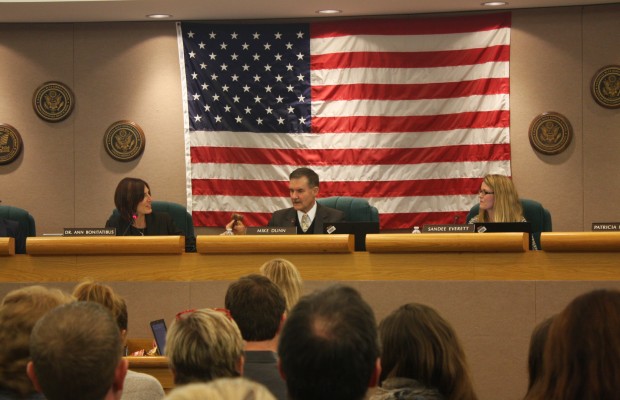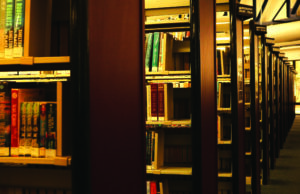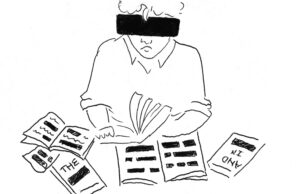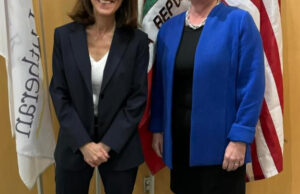Looking inside the school board: new member and new propositions

“Let’s have a round of applause and welcome our newly elects,” Dr. Ann Bonitatibus, Superintendent, said.
Dr. Betsy Connolly, first elected in November 2008, and Sandee Everett, elected this November, were each sworn into their elected positions to the Conejo Valley Unified School District (CVUSD) Board of Education in a Swearing-In Ceremony on Tuesday, Dec. 6, beside members Patricia Phelps, Mike Dunn, and John Andersen.
“I am looking forward to continuing to provide leadership that increases opportunities for student success and maintains the District as a great place to teach, work and learn,” Connolly said.
Additionally, Everett was excited to follow the footsteps of experienced Connolly and to begin her journey as a CVUSD Board member.
“It is very exciting for me to be newly elected and sworn in tonight,” Everett said. “I look forward to building relationships of trust, of fulfilling the responsibilities which I know are very important to not only the District employees but to the community of the whole.”
In reorganizing the elected positions for the upcoming year, the existing Board nominated members for positions for President, Vice President, and Clerk. The elected officials included: Dunn, president, Andersen, vice president, and Everett, clerk.
In acceptance of his nomination and election for the position of presidency, Dunn expressed his appreciation and vision for the upcoming school year.
“With everyone’s help, we are going to make a great school district even better,” Dunn said.
As Connolly and Everett were sworn in and the newly elected Board organized the future dates for the following school years, the Dec. 6 meeting also marked the end of Peggy Buckles’ term on the CVUSD Board of Education.
“I was honored to have served for 8 years and wish nothing but the best for our students, teachers classified employees and administrators in the future,” Mrs. Buckles said.
At the recent board meeting on Wednesday, Dec. 13, the first action item proposed was the approval of replacement of board policy 6142.94, which addresses history and social science instruction. Upon its announcement as a proposition, and a call for a motion, several long moments of silence ensued before Connolly voiced the movement.
The revision allows for the expansion of social science in the classroom to fully encompass world history, geography, economics, political science, anthropology, psychology, and sociology. The proposed curriculum would revise the current system specifically in its incorporation of civic values and national identity, addressing the significance of recent civil movements, including gay rights and women’s rights, and their place in history.
The community members who spoke on the amendment were overwhelmingly in support of adopting the curriculum changes. A member of the Thousand Oaks branch of the American Association of University Women (AAUW), Bonnie Shubb, expressed her thoughts on why the amendment is necessary.
“The state of California Board of Education hand selected a 25 member committee to study and recommend the curriculum for the state … They were experts in the field,” Shubb said. “So from a purely intelligent and logical standpoint, I would like you to ponder why there is any consideration on your part not to adopt this curriculum as is.”
Speaking for the AAUW, Shubb added, “We believe that bullying and discrimination do not have a place in our schools.”
Lucia Lemieux, English teacher, also attended the school board meeting to voice her opinions on the amendment. “Teaching our students about people with different challenges, backgrounds, and orientations opens their mind to the important fact that not everyone is like them,” she said.
After hearing from the public, Everett moved to postpone the vote until a future board meeting, so that she could have more time to study the amendment. Connolly questioned Everett’s motive for this motion, but Dunn seconded the motion.
“I’m disappointed that we’re not prepared to vote yes for this policy as it was proposed,” voiced Connolly. “I’m concerned that the idea of deep research on every one of the board policies and every bit of the curriculum isn’t going to be sustainable.”



